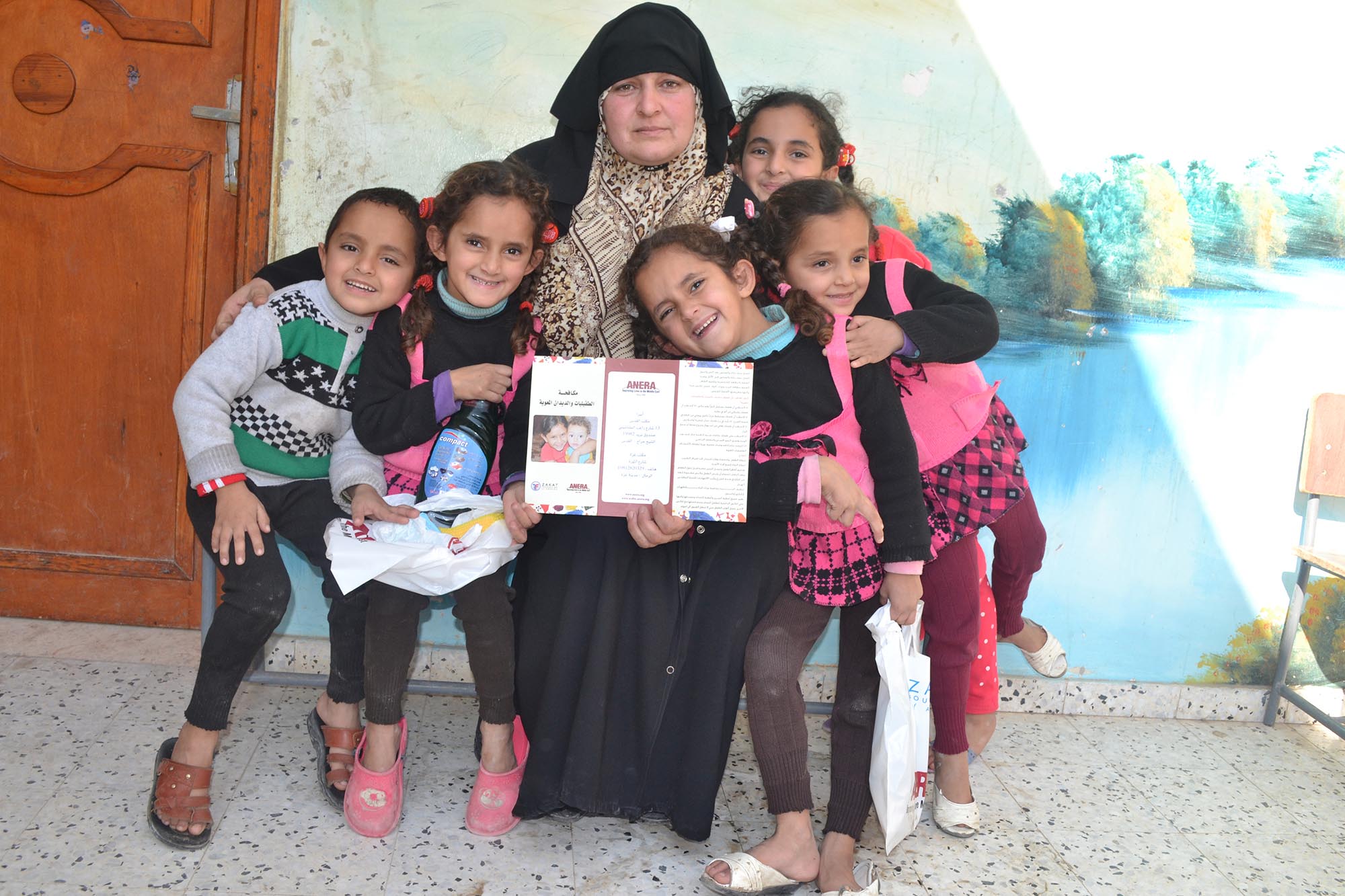Jan, 2014
In 2012, Anera spearheaded a pilot program to treat Gaza children for parasite infections. More than 300 families benefitted from the program, which also included awareness sessions to help prevent parasite infections.
The focus of Anera’s program this time is on health education for parents to learn more about detection, methods of eradication and good hygiene practices. Participants also receive hygiene kits, brochures and medicine for treatment.

Anera’s campaign against parasites is treating 6,500 children in 52 preschools across Gaza.
Intestinal parasite infection rates are usually higher in poor communities where there is environmental pollution and little or no sanitation service. Parasites can lead to serious health issues like malnutrition and digestive complications, liver and intestinal damage. Parasite infection is widespread among Gaza’s children. Combatting the malady requires both treatment and information about how to prevent it.
Om Ahmad Ebeed, mother of five, including quadruplets, was amazed at the information she could gather at Anera’s awareness sessions. “Most of the information is new for me,” she commented, “and extremely useful.”
Om Ahmad’s children all were tested and treated under the Mebadazole suspension treatment program. Three of her children now are free of any type of helminthes. Two will receive additional treatment. “I noticed little Mohammad wassn’t sleeping well and he had a consistent itching in his back, but that went away and his eating improved after he took the medicine,” she added.
Om Ahmad’s children took “Mebendazole” treatment” as part of Anera’s program approach of mass deworming per World Health Organizationrecommendation in countries with more than 30% of its population is infected
Om Ahmad says she doesn’t want that improvement to be reversed and now insists on healthy practices for the whole family, from hand washing and regular bathing to proper cleaning of vegetables and other foods. Om Ahmad also keeps the brochure Anera handed out so she can refer to it easily. “I talk to my relatives and my neighbors about what I have learned and how it has become part of our daily routine.”

“It is all about building a culture of healthy habits and we see it as a long-term investment.”
“Parasites can be transmitted right after eating contaminated vegetables or other types of food, walking barefoot or through trapped dirt in untrimmed fingernails,” said the director, who has involved her school in Anera projects for more than 15 years.
She also welcomed Anera’s mobile testing lab at the school, which expands access for parents and children. “For the first time we have a mobile lab to come do tests right here, it saves families the cost of transportation and test fees.” Buthaina added, “It is all about building a culture of healthy habits and we see it as a long-term investment.”
Anera’s parasite prevention programming in Gaza is funded by the Zakaat Foundation and the Kuwait government.


